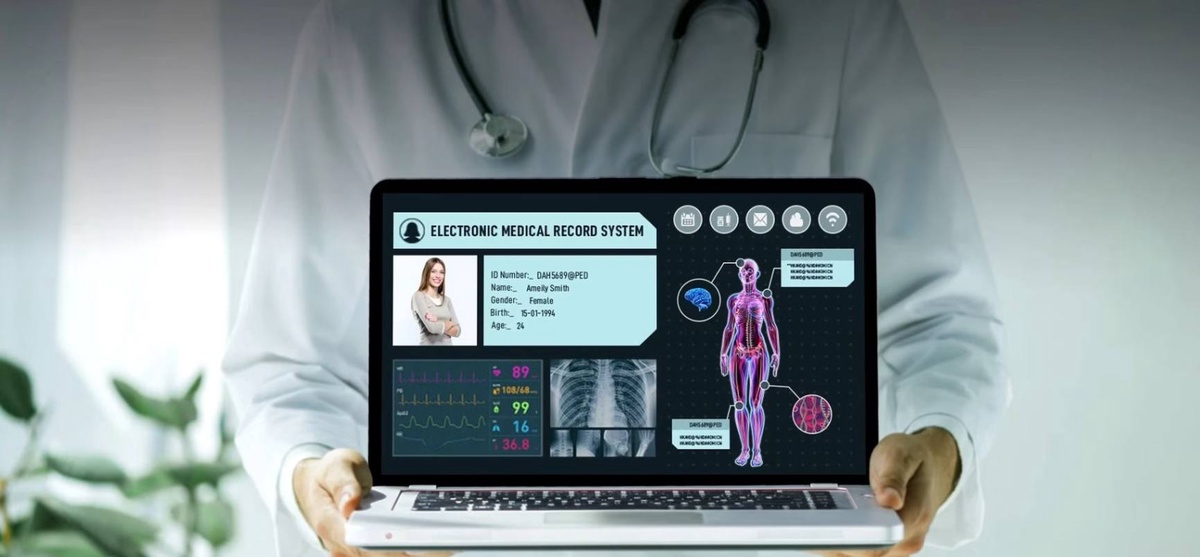In the ever-evolving landscape of healthcare, the shift towards digitization is undeniable. Electronic Medical Records (EMR) and Electronic Health Records (EHR) systems have emerged as integral components in this transformation, facilitating streamlined processes and enhanced patient care.
Why are EMR Systems Essential in Healthcare?
In the contemporary healthcare landscape, the adoption of EMR systems is pivotal.
These digital repositories transition healthcare providers from traditional paper-based record-keeping to a more efficient, accurate, and accessible means of managing patient information.
Comprehensive data, including diagnoses, medications, treatment plans, and test results, is seamlessly organized within EMR systems, driving operational excellence.
How are EMR Systems Integrated into Healthcare Practices?
The integration of EMR systems in healthcare is transformative, enhancing both operational efficiency and patient engagement. The accessibility of medical records empowers healthcare professionals to make informed decisions promptly, leading to improved patient care and overall healthcare outcomes.
What Can We Learn from the Dynamics of EHR Systems?
EHR systems take the concept of digital records a step further by providing a holistic view of patient health. Beyond individual records, EHRs integrate information from diverse sources, promoting a more comprehensive understanding of a patient's well-being.
The interoperability of EHR systems facilitates seamless data exchange among healthcare entities, contributing to a more collaborative and unified healthcare ecosystem.
How Do Medical EMR Systems Deal with Challenges and Go Beyond?
Data Mastery: Efficiently manage patient data, ensuring accessibility and accuracy.
Connectivity Unleashed: Create seamless networks for improved communication and collaboration.
Patient-Centric Approach: Elevate care with timely, tailored treatments, prioritizing positive outcomes.
Innovation in Healthcare Navigation: Discover how medical EMR systems revolutionize the healthcare landscape.
Care Redefined: Witness a paradigm shift with patient-centric, optimized treatments.
By navigating challenges and embracing innovations, medical EMR systems become catalysts for positive change in the healthcare landscape.
In What Ways Does Electronic Medical Records Software Lead the Way?
The journey towards comprehensive digitization necessitates advanced tools such as electronic medical records software.
EMR software development centralizes patient information and offers features that adapt to the evolving needs of healthcare providers.
The seamless integration of electronic medical records software ensures a cohesive approach to patient care, marking a significant stride in the digitization of healthcare practices.
What Can We Expect in the Future for Custom EMR EHR Software in Healthcare?
As the healthcare industry continues to embrace digital transformation, the role of electronic medical records software becomes increasingly indispensable. The evolving landscape offers promising future perspectives for these solutions, marking a transformative journey towards a more efficient and patient-centric healthcare paradigm.
How Do We Make EHR Solutions Fit Custom Needs?
Acknowledging the demand for specialized solutions, the development of EHR software solutions customized to specific requirements gains prominence.
Customization allows healthcare organizations to align software functionalities with their unique workflows, ensuring a seamless integration of digital solutions into existing practices. Custom EHR solutions approach fosters efficiency and improves overall healthcare delivery.
Conclusion:
The development of custom EMR EHR software solutions is pivotal in shaping the future of healthcare. Tailored to the unique needs of healthcare organizations, these digital solutions not only enhance operational efficiency but also contribute to improved patient care and outcomes.


No comments yet